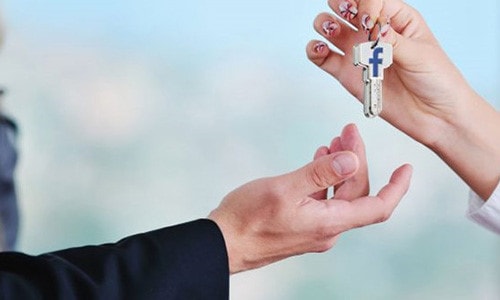Habits that make Facebook vulnerable to hacking
Using easy-to-guess passwords and not setting up 2-step authentication is a habit of many people when using social networks.
Accountsocial networkor any other online account can easily fall into the wrong hands if users are not careful, do not care or do not use security methods.
Use easy to guess passwords
If you want your Facebook to be hacked, there's no simpler way than using an easy-to-guess password like: 123456, your date of birth, or your own full name.
These types of passwords are very easy to get exposed. An automated password cracking tool or someone you know can easily guess them.
The shorter the password, the easier it is to guess. Additionally, using only dictionary letters and omitting complex symbols and numbers also makes your account password easier to steal.
Don't use two-step authentication
Two-Factor Authentication is the best way to protect your Facebook account, although it takes a little more time.
To make it easier to visualize, this type of identification, in addition to the usual import requirements, also requires a confirmation code sent directly to the user's phone.
Although many people find this method of protection cumbersome and time-consuming, it helps protect the account very safely.
 |
| You can easily give your Facebook account to bad guys if you are not careful. |
Click all links
This habit will sooner or later get users into trouble. Links are the most common way to direct users to malicious websites.
Links can come in the form of emails, social media messages, pop-up ads, and even fake Facebook login pages designed to look like the real thing.
Clicking on all these links or mindlessly logging into phishing sites is the shortest path to losing your social media accounts and personal information.
Habit of saving login information
Saving your login information in the “Remember Me” section is the most convenient way so that next time you visit that website you don’t have to log in again.
However, if you keep this habit on public computers like school, library or at your friend's house, your account will be easily accessible by anyone.
Let go of email accounts
Each individual often uses an email address to log in to many websites on the Internet, including social networks, job sites, financial services, banks, resources, online support services, etc. If this email address is lost, bad guys will have a way to take over all of the above accounts.
Lax email management by not using two-step authentication, not using email service provider's security enhancement tools, or not answering personal information questions to retrieve passwords can easily lead to email theft.
Connect apps haphazardly
Connecting apps and games to social network accounts is convenient for entertainment but has potential security risks.
New Facebook games often ask for access to your contact list, birthdays, work history, and other personal information.
There are even games that ask for permissions that have nothing to do with the game's functionality. If you accept all of these requests, you've unwittingly opened the door for bad guys to enter your home.
Ignoring the warning signs
Similarly, ignoring unwanted account access warnings, following password reset emails that you didn't request, or having friends report strange statuses on your Facebook can also easily lead to losing your account.
Don’t wait until the bad guys have taken over your account to pay attention to the above measures. Also, be careful not to share sensitive information, not to provide account information to others, and not to be too easy to make friends with strangers on social networks.
According to Kienthuc
| RELATED NEWS |
|---|







.jpg)
